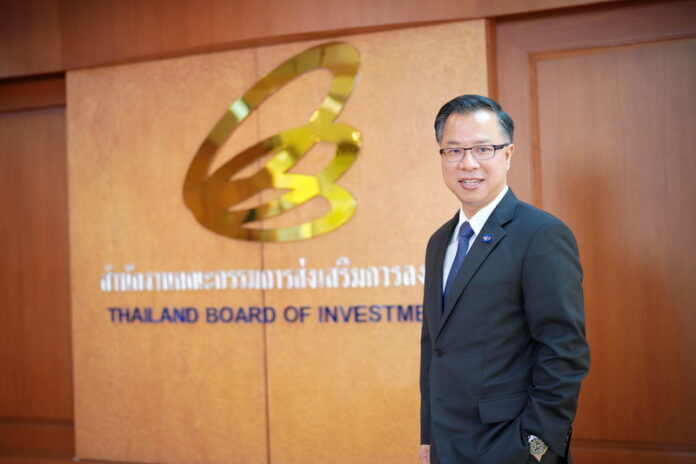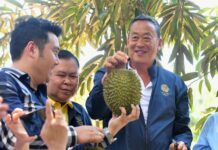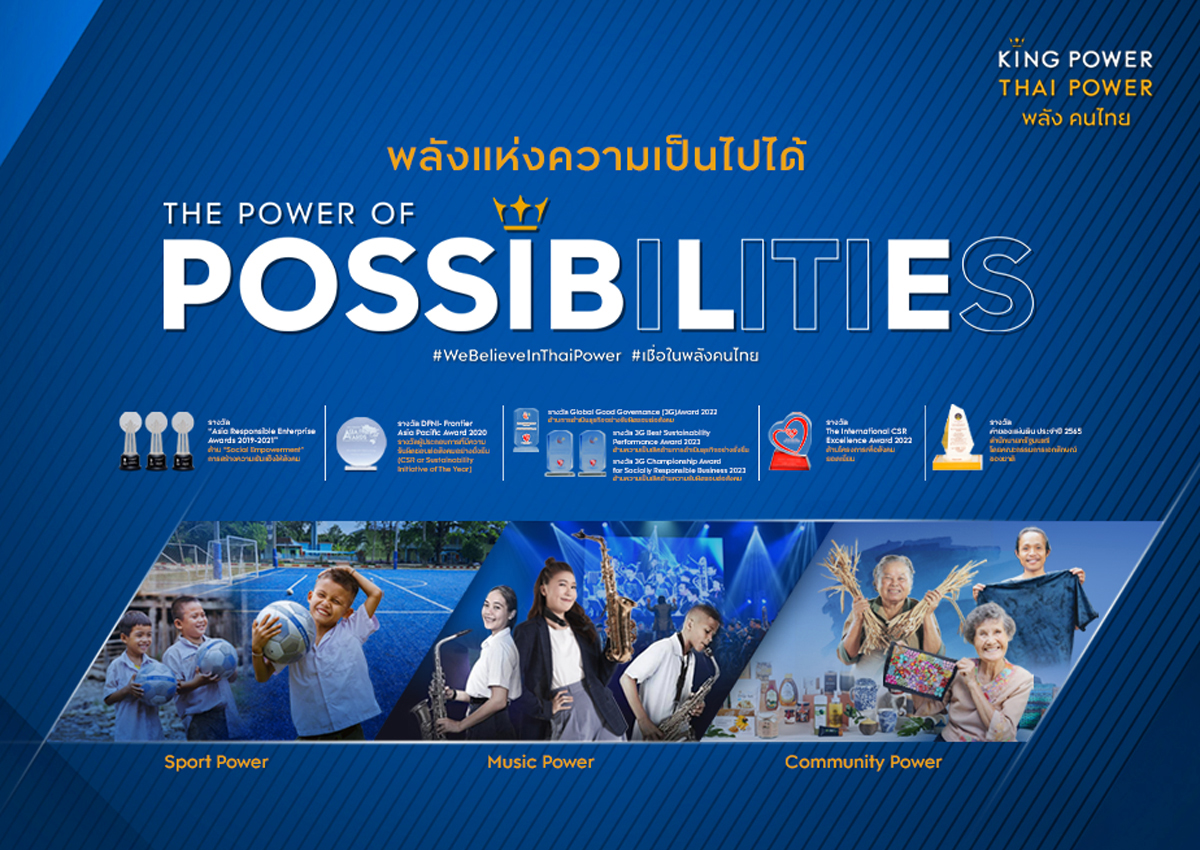

Two battery cell manufacturers from China planned to invest 30 billion baht in the first phase of their production base in Thailand.
Mr. Narit Therdsteerasukdi, Secretary General of the Thailand Board of Investment (BOI) said the BoI’s roadshow to China’s Fujian and Guangdong during April 7-10 to meet executives among seven global leaders of battery cell manufacturers. Two companies showed their intention to establish their production bases in Thailand with an investment in the first phase with a combined value of more than 30 billion baht. Each company planned to manufacture in the first phase of 6-10 GWh. The others are in the process of considering investment opportunities.
Those seven companies included CATL, CALB, IBT, Eve Energy, Gotion High-tech, Sunwoda and SVOLT Energy Technology.
“Those companies expressed their interest in the Thai government policy to promote battery cells on February 21, and have seen more opportunities for the investment in Thailand.”
The National Board Electric Vehicle Policy Committee chaired by Prime Minister Srettha Thavisin on February 21 approved a cash grant for EV battery cells manufacturers.
Battery cells for EV
The government approved a plan to promote the manufacturing in Thailand of battery cells for EV and energy storage systems (ESS) by providing financial support via the country’s Competitiveness Enhancement Fund such as investment, research & development, human resource development and possibly other benefits available under the Competitiveness Enhancement Act, to companies meeting the criteria.
To qualify for investment promotion under this scheme, a company must meet the following requirements of being a leading and well recognized battery manufacturer providing batteries to EV manufacturers
Having a clear plan to produce for battery cells for batteries used in EV, and also if possible to produce battery cells for batteries used in ESS; the batteries must have a high energy density of not less than 150 Wh/kg.
The battery must have a life cycle of not less than 1,000 cycles, counting from 70% of the nominal capacity at a depth of discharge of not less than 80% at a test temperature of 20-25 degrees Celsius.
Interested companies must submit their investment project proposals by the end of 2027.
Thai government support
“Battery cells manufacturing is a high technology, to use large scale of investment and is significant upstream of the electrical vehicle (EV) industry while the seven companies reflected that Thailand has gained advantage especially clear policy of Thai government to support. They said the policy will enhance demand for battery cells which will support big step of EV ranging from EV, PHEV and HEV.”
He said China is the global leader of battery cells manufacturers which have a combined capacity of 60% of the global. CALT is the major manufacturer which accounted for 37% of the global market.
“Those companies are not only supply battery to Chinese EV cars but also supplies to Tesla, Ford, BMW, Mercedes-Benz, Volkswagen. They also are alliance to Toyota while Volkswagen to hold major shares in Gotion. Two companies have collaborated to conduct R&D on future technology of battery.
EVE Energy also supplies batteries to BMW, SVOLT and Stellantis. Sunwoda supplies to Renault, Nissan, Volkswagen, and Volvo.
“Those seven batter cells manufacturers are in the process to expand their production bases to out of China in a bid to supply to global market and reduce risk from geopolitics which is likely to have more drastic. Some companies have already invested in EU and the US and looking forward opportunity in Asean. Thailand needs to attract them to invest in Thailand.” Said Mr Narit.








